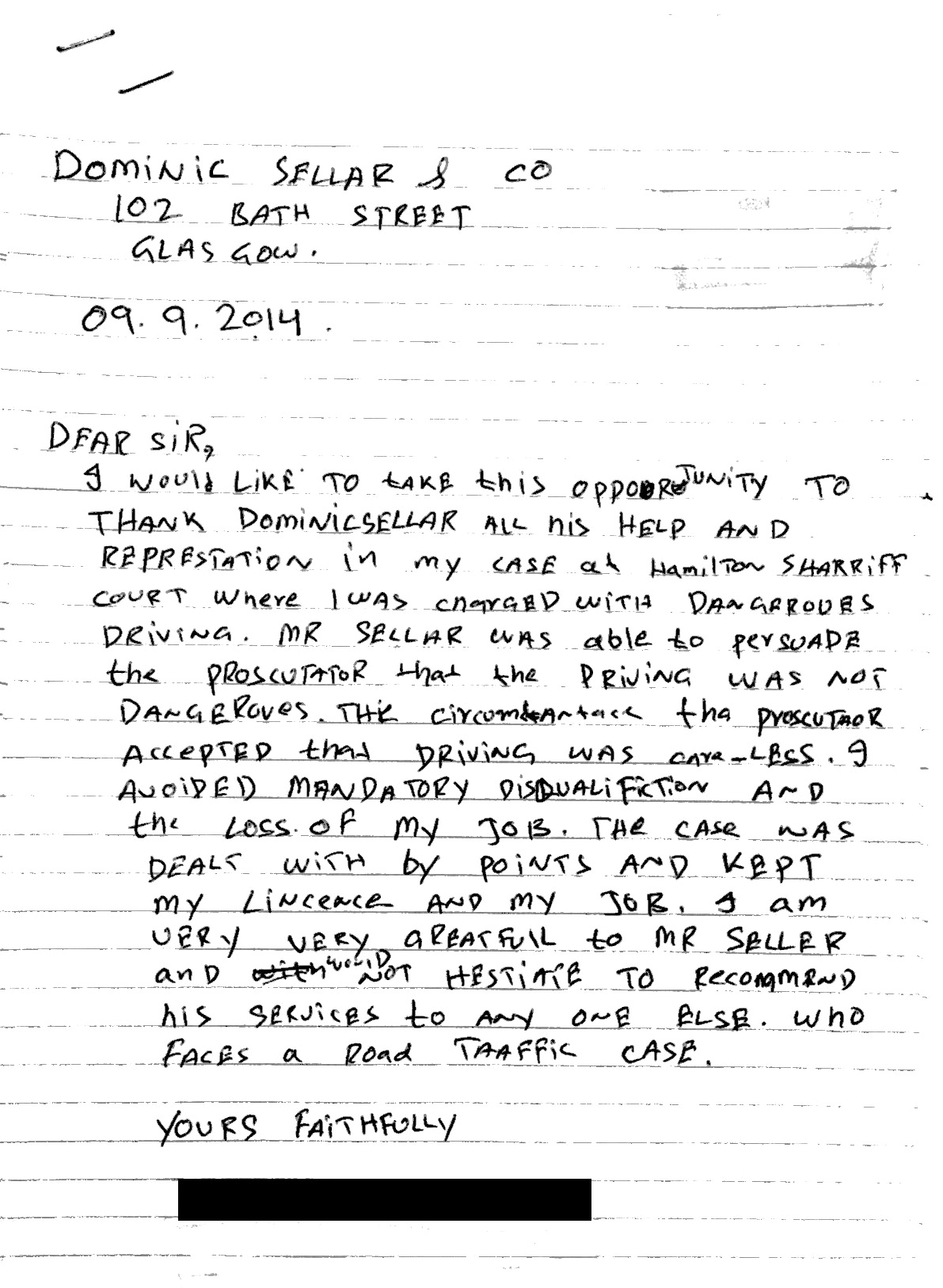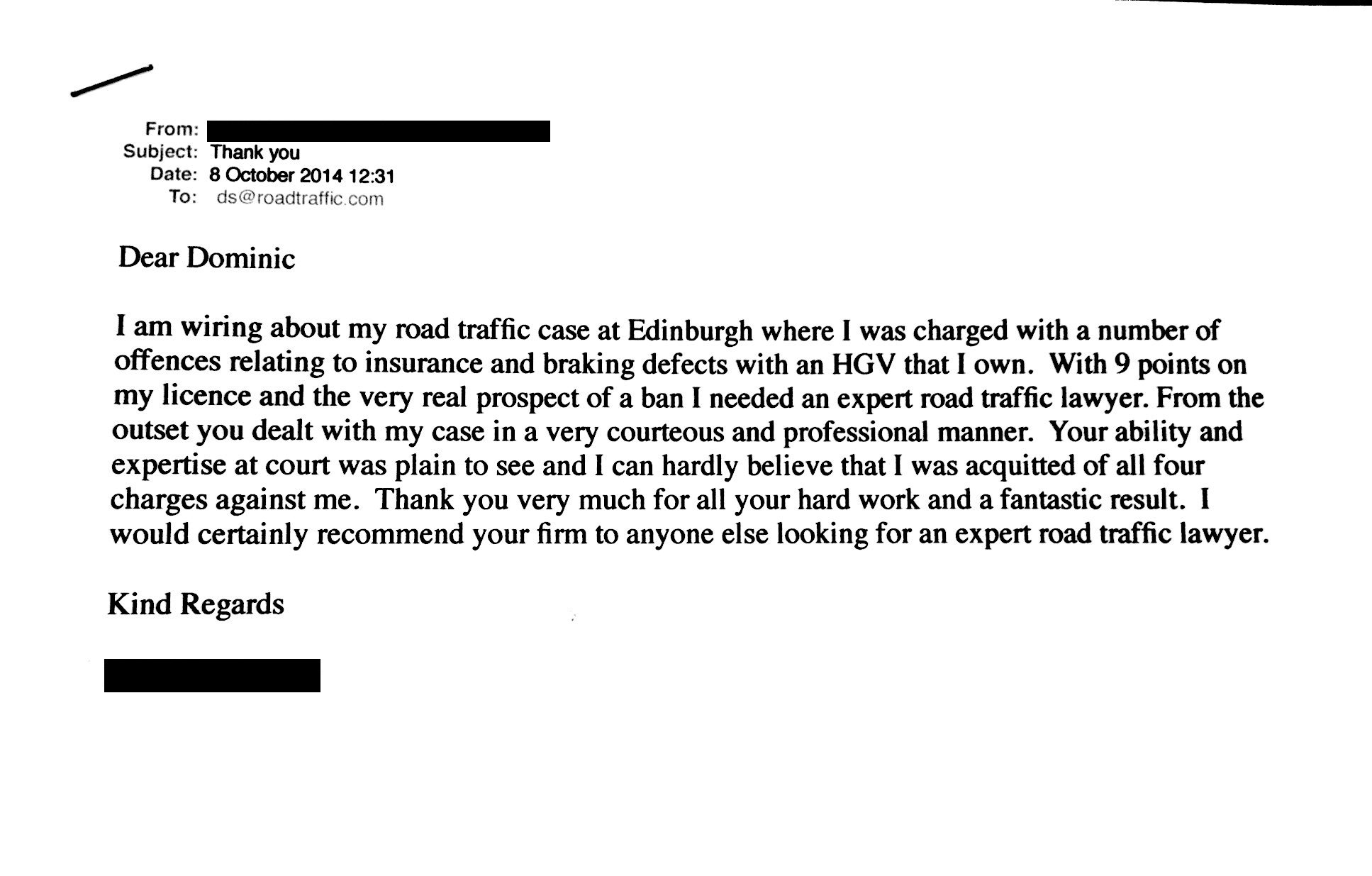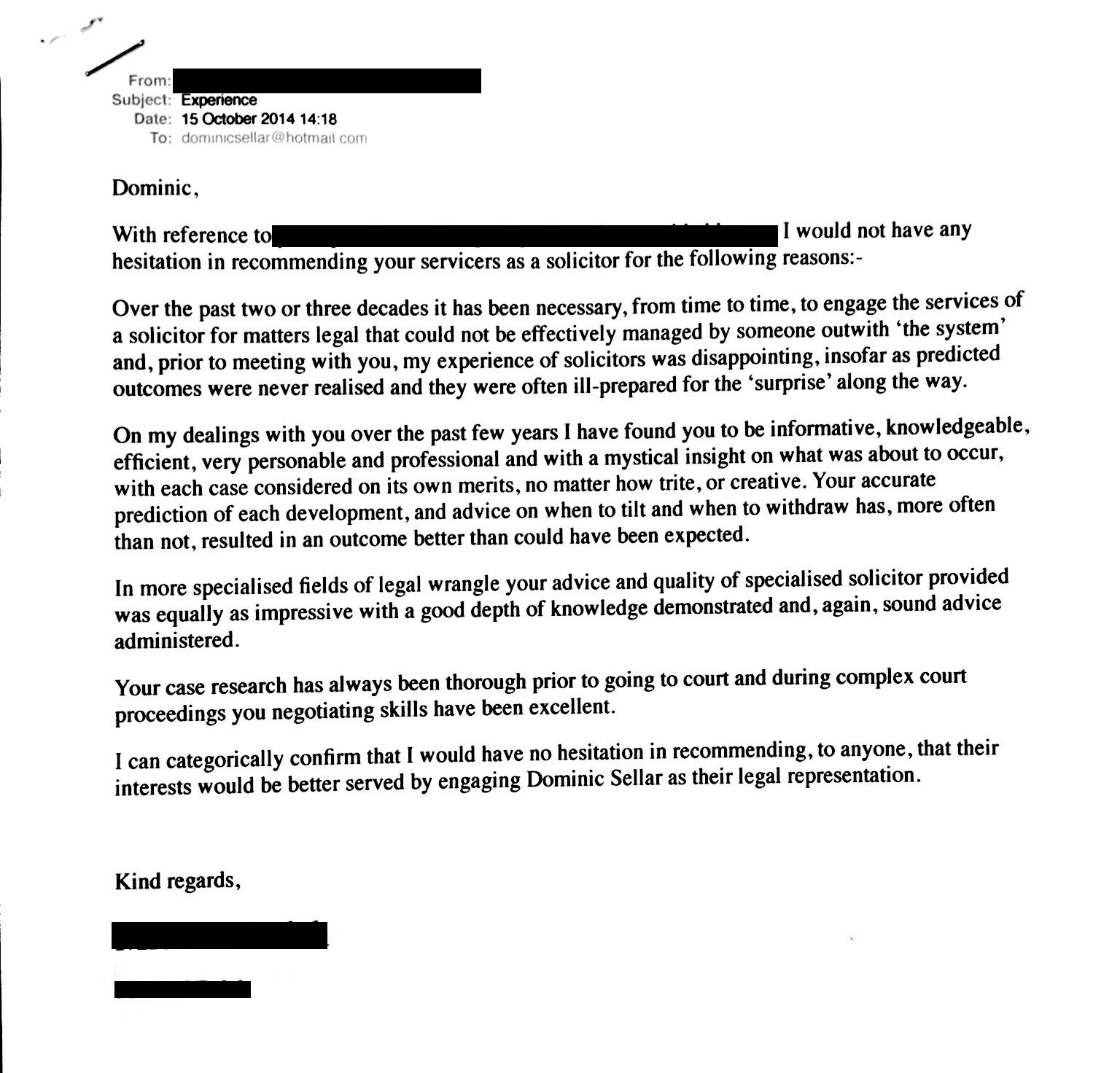Section 35(4)(b) Road Traffic Offenders Act 1988
If a driver accumulates 12 or more penalty points within a 3 year period he becomes a “totter” and must be disqualified for at least 6 months under the “totting-up” provisions. However, disqualification can be avoided if the driver can prove that the loss of his licence will cause Exceptional Hardship to himself and others.
Exceptional Hardship can only be argued where the offence in question carries penalty points and where the driver faces disqualification under the totting-up provisions. This means that Exceptional Hardship cannot be argued in cases involving mandatory disqualification, such as drink driving or dangerous driving.
What is Exceptional Hardship
There is no strict definition of the term “Exceptional Hardship” and each case will depend on its own merits and circumstances. As a general observation, it is important to note that the hardship suffered must be “exceptional”. It should, therefore, go beyond what would normally be suffered by someone who loses their licence. As such, loss of employment in itself is unlikely to satisfy the Exceptional Hardship test. However, if it can also be established that the loss of employment will have a knock on effect and so cause hardship to other persons then this might amount to Exceptional Hardship.
Examples of Exceptional Hardship
There are no hard and fast rules as to what circumstances might amount to Exceptional Hardship and often a combination of circumstances may provide the best prospect for success. These include:
- Loss of employment
- Loss of business
- Ill health or disability
- Loss of home
- Hardship to employer
- Hardship to employees
- Inability to pay loans
- Hardship to family members
In all cases the driver facing disqualification will have to show that he has taken steps to minimise the impact that losing his licence will have, such as looking for alternative employment. In these circumstances, the court should consider the current economic climate and the availability of alternative jobs. If a driver is unlikely to find alternative employment because of his age or lack of skills then these are factors that should also be considered by the court.
Procedure for Exceptional Hardship
An application for Exceptional Hardship must be raised by the driver at the time of sentence. This happens at the point at which a driver is convicted or where he accepts he committed the offence and pleads guilty. In the normal course of events, once an application for Exceptional Hardship has been made the court will fix a date for a hearing which is called an Exceptional Hardship Proof. Strictly speaking the court should firstly decide on the number of penalty points that should be endorsed on the licence and then consider the question of Exceptional Hardship. However, it is also common for courts to consider the question of Exceptional Hardship first and then decide on the number of points. Regardless of the procedure that is adopted, penalty points must be imposed.
The onus or responsibility is on the driver to prove that Exceptional Hardship is likely to result from the loss of his licence and that that would justify the court in making a finding of Exceptional Hardship. In practice the driver will require to give evidence and lead other evidence to support his application for Exceptional Hardship. If this evidence is not accepted by the prosecutor the driver can be cross-examined and the evidence challenged. Conversely, the prosecutor may accept what is said by the driver. In this situation, the court can simply hear submissions in the absence of evidence.
The Court’s Decision
At the conclusion of the hearing the court will decide whether or not Exceptional Hardship has been established. If the Exceptional Hardship argument is successful, the court will impose penalty points and then order that no disqualification is made or reduce the period of disqualification. This decision is recorded on the driving licence and it is important to note that a driver cannot rely on the same grounds to support another application for Exceptional Hardship within a three year period.
If the argument for Exceptional Hardship is unsuccessful the court will impose the appropriate number of points and disqualify the driver for a minimum period of 6 months. The period of disqualification increases to 12 months if the driver has been previously disqualified.
On a positive note, disqualification under totting-up has the effect of “wiping the slate clean” so that all the points that resulted in the ban will be removed from the licence.
Independent Reviews
Go online or have a look at the reviews below to see why we’re the right solicitors for you.
Trustpilot
Google
Facebook
Client Letters
-
I honestly couldn’t praise Dominic enough!!
I honestly couldn’t praise Dominic and this fantastic company enough. I had direct communication from Dominic after I was recommended to acquire their services. Dominic was first class from the off, kept me updated through out and was an absolute gentleman. So my advice would be if you require any assistance in terms road traffic […]
-
Excellent lawyers firm.
I had a drink driving charge and speeding charge. I found Dominic Sellar & Co online. Dominic discussed my case with no obligation telephone consultation and advised me of what lay ahead. I decided to use his support & services.Dominic was not able to attend court on the day of my case but his partner […]
-
Dominic Sellar & Co
Dominic Sellar & Co. left a lasting impression with their remarkable and thorough approach. Their meticulous attention to detail and commitment to excellence were evident throughout the entire process. The professionalism and expertise demonstrated by the team were truly commendable, making the experience both impressive and reassuring.
-
Speeding Driving Charge – 1st Class Service
Recently hired Dominic for a speeding charge I received. My experience was first class from start to finish upfront cost no hidden charges and communication from Dominic at all times was amazing only a phonecall away.
-
Multiple Charges
I was facing multiple charges and Dominic sorted Everything out. I’m absolutely delighted by the outcome. And would recommend him to anyone needing a traffic lawyer.
-
Honest and trustworthy service
facing a very difficult situation of a lengthy ban Dominic managed to fight my corner which resulted in a more manageable short term ban. What I liked about Dominic was that he was very straight talking and was very honest. Wouldn’t hesitate to recommend him.
-
Dominic was great from the start
Dominic was great from the start, advice and possible outcomes. Handled my case with minimum fuss. The outcome was better than I could have hoped for. Hopefully I will not need you again, but should I face the same predicament I wouldn’t go anywhere else. Highly recommend. Thank you again.
-

Mr SF, Glasgow
“I would like to take this opportunity to thank Dominic Sellar for all his help and representation in my case at Hamilton Sheriff Court where I was charged with Dangerous Driving. Mr Sellar was able to persuade the prosecutor that the driving was not dangerous…the Prosecutor accepted that the driving was careless. I avoided a […]
-

Mr K, Manchester. Construction & Use Case
“I am writing about my road traffic case at Edinburgh, where I was charged with a number of offences relating to insurance and braking defects with an HGV that I own. With 9 points on my licence and the very real prospect of a ban I needed an expert road traffic lawyer. From the outset […]
-

Mr BM, Aberdeen
“…I would not have any hesitation in recommending your services as a solicitor…I have found you to be informative, knowledgeable, efficient, very personable and professional and with a mystical insight on what was about to occur, with each case considered on its own merits, no matter how trite, or creative. Your accurate prediction of each […]
